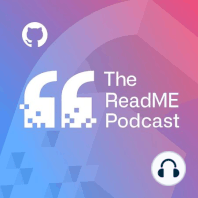50 min listen
(De)coding conventions
ratings:
Length:
42 minutes
Released:
Jul 11, 2023
Format:
Podcast episode
Description
Programming languages are always in flux, and so is the way we use them. In this episode, we dive into the rise of TypeScript, with The ReadME Project’s Senior Editor Mike Melanson outlining its history and evolution. Hosts Neha Batra and Martin Woodward discuss the pros and cons of static typing, and Jordan Harband from TC39 shares his views on the benefits and limitations of TypeScript. We also hear from Aaron Gustafson on AI’s potential to enhance accessibility and highlights the projects that are leading the charge. And Kingsley Mkpandiok from the CHAOSS Project, responds to an #AskRMP submission with tips on encouraging non-code contributions within open source projects.Here’s what’s in store for this episode:00:00 - The hosts discuss the challenges of establishing web standards in open source communities when new technologies emerge. 02:38 - First Commit: The transformation of the world of stock trading from a chaotic, bustling floor to an automated and computer-driven environment. They highlight the role of open source, particularly Linux, in powering high-speed trading systems and enabling advancements in performance and speed. 05:40 - Feature release: The ReadME Project’s Senior Editor, Mike Melanson, discusses the rise of TypeScript and the pros and cons of statically typed languages.18:24 - The interview: Aaron Gustafson joins the hosts to discuss the role of AI in improving accessibility. He highlights initiatives such as Microsoft's AI for Accessibility Grant Program, which invests in research and startups to drive innovation in accessibility.36:10 - AskRMP: Kingsley Mkpandiok answers a listener’s question on encouraging non-code contributions. The key? Communicate that everyone’s skills matter.Looking for more stories and advice from the open source community? To learn more from the authors and experts featured on this episode, check out:TypeScript and the dawn of gradual types by Mike MelansonAdvancing inclusion with progressive enhancement by Aaron GustafsonFrom fixing computers on farms to democratizing DevOps by Kyler MiddletonTurbulent times call for adaptive leadership by Tramale TurnerMake your first open source contribution in four easy steps by Ruth IkegahSpecial thanks to Jordan Harband for sharing his insights on TypeScript, Aaron Gustafson for outlining the role that AI will play in accelerating accessibility, and Kingsley Mkpandiok for answering a listener question about encouraging non-code contributions. Check-out The ReadME Project, for more episodes as well as featured articles, developer stories, helpful guides, and much more! Send your feedback, questions, and ideas to thereadmeproject@github.com.
Released:
Jul 11, 2023
Format:
Podcast episode
Titles in the series (36)
Taking Das Blog into the future: In this episode, we sit down with Scott Hanselman and Mark Downie, maintainers of Das Blog. Developed in the C# programming language, Das Blog is a robust blogging application that supports languages across the globe and doesn’t require a database. Scott and Mark share how they met, and how they’re ushering 20 years of code into the future. We’ll dig into their partnership, the responsibility of taking over heritage code, and the value of blogging. Hear it all, now on The ReadME Podcast. by The ReadME Podcast
